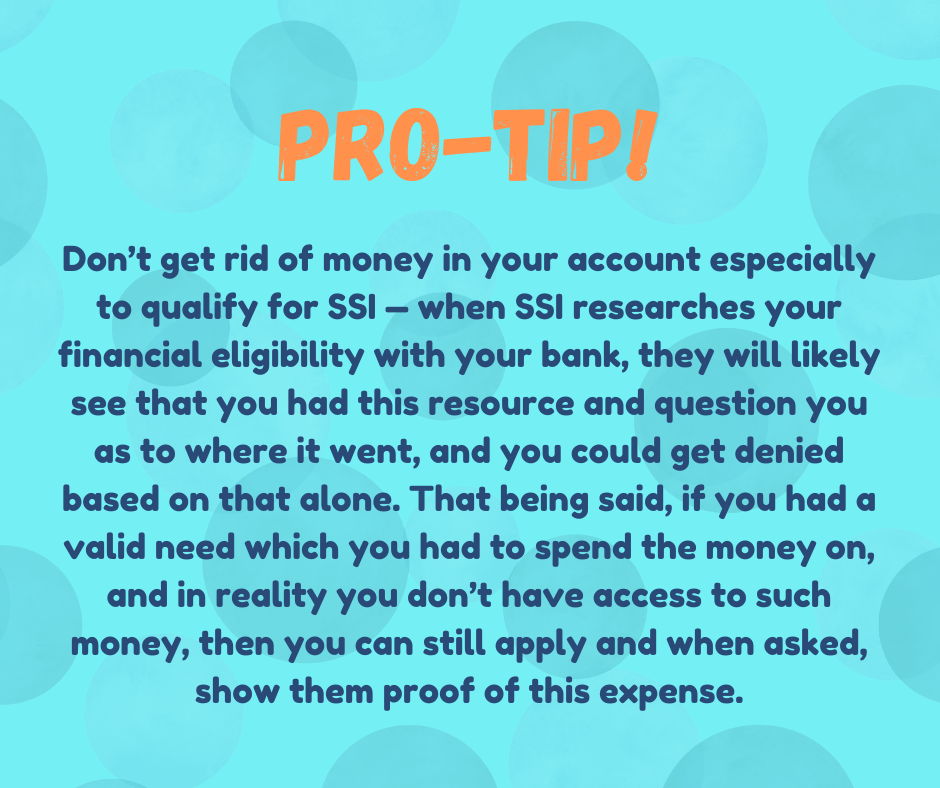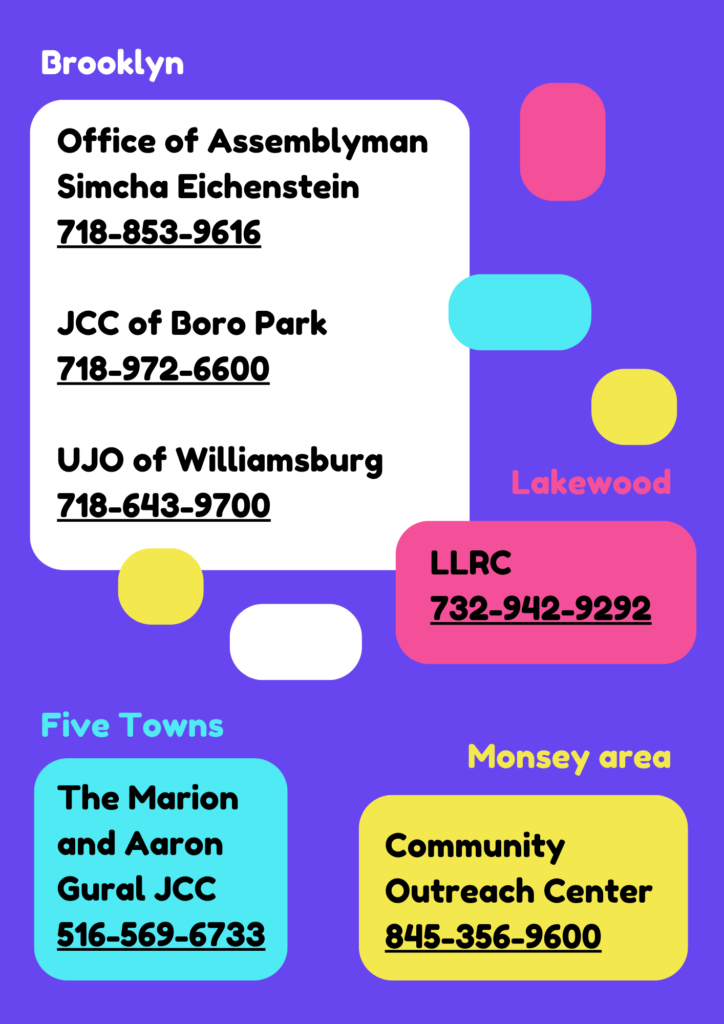Money is the most important thing in life. Not.
But when there’s not enough to go around, when each month’s expenses bring new anxieties about how the bills are going to get paid, when you have a special needs child whom you love dearly but costs you A LOT of money to care for… Then money seems pretty important. It becomes all you think about (even though you’re very grateful for all of the gifts you have). It becomes everything you talk about (even though you know that money is not the most important thing in life).
So, your neighbor, your sister-in-law, or your co-worker tells you about SSI and how it could help, and now you’re left with some questions.
What is SSI?
SSI – which stands for Supplemental Security Income – is a federal program (rejoice, non-New-Yorkers!) administered by the SSA (Social Security Administration) which gives a monthly stipend for basic living expenses to people with little to no income who are over age 65, blind or have a disability.
(Not to be confused with Social Security Disability benefits, which are for people who worked a minimum amount of years before stopping to work due to their disability. In contrast, one can receive SSI even if he was never employed.)
Is my child eligible?
While there technically is a formal list of qualifying disabilities, SSI benefits are not awarded exclusively to those whose disabilities are included on the list.
The general rule is that the disability must be expected to last more than 12 months or be expected to result in death, chas v’shalom. (The “chas v’shalom” is not on the SSA website, of course, but we tend to be slightly more optimistic😉)
If your child a) meets the financial limitations, and b) has such a disability, you can apply and see if your child will get approved.
What are the financial limitations?
The income limit varies based on many factors, including whether an individual lives on their own or with a spouse, whether other household members are employed, whether the individual is collecting unearned income (such as unemployment), and various other things.
There’s a great tool on the official SSA website which calculates your income to determine whether your child might be eligible.
However, it doesn’t take every factor into consideration, so don’t jump for joy (yet) when you see that you probably meet eligibility requirements – and don’t give up all hope if it tells you that you probably don’t!
Just take it as a general pointer.
Bear in mind that a child (under age 18) qualifies for SSI based on his parents’ financial qualifications, not just his own, so the parents’ income must not exceed the limit. Again, that income limit will vary based on whether it’s a single or two-parent home, there are other children at home, other family members who bring in money, and other factors.

In addition to the income limit, there is an asset/resource limit for the disabled individual of $2,000 for a single person, and $3,000 for a married couple. (If you’re a parent applying for a child, these numbers increase by $2,000.)
Assets do not include one primary residence and one vehicle (Beginning in 2025, a second vehicle will be excluded as well).
However, any cash, money in the bank, savings, investments, bonds, etc. are considered resources and are subject to the resource limit. Think, summer home in the country, son’s car registered in your name, and the US Treasury bond your uncle got you for your Bar Mitzvah… Everything counts!

The application process
You can apply for SSI online or go down to your local Social Security office.
(Calling the main SSA number is not recommended, unless you want to wait around on hold for a loooooong time. Cool fact: many local Social Security offices have direct lines, where helpful reps actually answer the phones! Call Ezreinu at 718-750-1010 to get the direct number for your local office.)
Once you submit your application, they will call you within 3 – 5 business days to get more information about the child and his family.
Then, they’ll send the application to a Disability Determination Services (DDS) office in the child’s state. They take 6 – 9 months to review the application and medical records (sometimes shorter). After their review, the child will get a letter in the mail with the decision. If the child is approved, they’ll check the financial documents you provided with the application. Then, the child will get another letter in the mail that says how much money the child will receive every month.
Many community service centers can help you out with SSI application questions if you get stuck. (And by the way, if you’re in NY and have OPWDD, your care manager can help you out, as well!)
Here are a few places we’ve found helpful:
Backpay
Elimelech is a sweet 9-year-old kid with Cerebral Palsy which severely impacts his mobility, feeding, and general independence. He doesn’t let that stop him from smiling and playing pranks on his siblings with his communication iPad.
He is one of 5 children and his father learns full-time in Kollel. His mother works hard at her part-time job, but the paycheck can barely cover the rent for their too-small apartment, let alone the utility bills, basic grocery orders, and gas.
In May, Elimelech’s mother applies for SSI on Elimelech’s behalf. In February, seven months later, SSI sends a letter for Elimelech, confirming that he meets all eligibility requirements (both disability and financial) and will receive a monthly payment of $800 a month from SSI. He will also receive a sum of $5,600, backpay of $800 per month for the seven months since he applied.
This is a very welcome piece of news, of course, and Elimelech’s parents are relieved, but they are also worried — will the large amount of money Elimelech just received count as an asset, and cause them to lose the SSI that was just finally received?
The answer to this very common scenario is no, they will not lose the SSI for getting backpay.
However, they should make sure to follow all instructions for depositing and using this backpay within the correct timeframe.
For a child whose parent is managing their finances, the parent has to open a dedicated account for the backpay so that it’s not considered a resource. SSA will provide instructions if it is necessary to open a dedicated account.
For an adult who is receiving SSI, the money will get deposited into their regular account.
All backpay must be spent within 9 months, or it will become a resource for the individual.
Beware if you don’t wanna pay back money to SSI
Basya is a charming young adult with a developmental delay. She works as an assistant in a nursery classroom in the mornings, and she goes to a fun exercise program twice a week in the afternoon. She lives all by herself in an apartment in the same building as her loving parents, where she sometimes swings by for lunch, laundry assistance, or just to say hello. She receives an SSI payment each month, which she uses to pay her rent.
Last year, Bubby gave Basya an extra-special check of $2500 as a Chanukah gift! Basya rushed to the bank, where she carefully deposited the check. She remembered to sign the back, just like her mother taught her. Basya wasn’t sure yet what she wanted to do with the money, so meanwhile, it sat in her account.
Half a year later, SSI did a review to see if Basya still qualified for SSI payments. They discovered that her bank account held a number well over the resource limit.
Now Basya has been receiving payments which she was not eligible for all of this time, so she owes SSI a lot of money!
What could Basya have done to prevent this situation?
Any time that there is a change in income or resources, whether it’s due to a raise, a one-time bonus, a gift, a loan, or something else, the recipient is obligated to tell SSI before the 10th of the next month.
If it’s a one-time thing, SSI will not be suspended. They will simply reduce the payment for that month, and then resume with the monthly payment.
If someone fails to tell SSI about a change in income, they will have to pay back SSI for all of the payments they got that they were ineligible for. This is often done by getting their SSI payment cut by a percentage until the full amount has been paid up.
If you get into a sticky situation with SSI, there are professionals who can help.
Reach out to Ezreinu at 718-750-1010 for organizations and advocates who can help you get your SSI back on track.
Legal loophole - give your child $$ without causing them to lose their SSI
There are legal ways for you to set aside money for your adult child with special needs without impacting the benefits (such as SSI) which they depend on, most notably through utilizing Special Needs Trusts or ABLE accounts.
Stay tuned for more details on our fantastic upcoming
FINANCIAL PLANNING WEBINAR,
where you will learn about the different options available and get equipped to make educated decisions regarding your child’s future.
The information provided in this newsletter regarding eligibility and the application process was seen on SSA.gov or verified with a social security representative.

^^ Want *YOUR NAME* to be in this spot next month?
Join Holding Hands and win a
$150 gift card!
Get 2 people to join Holding Hands = 1 ticket
Cover a short-term request = 2 tickets
Cover a long-term request = 3 tickets
Get involved TODAY to be entered into this month’s raffle!
No WhatsApp? No problem! Join the text group by texting your name and number to 929-450-4433.
And yes, you can still enter into the raffle:)


